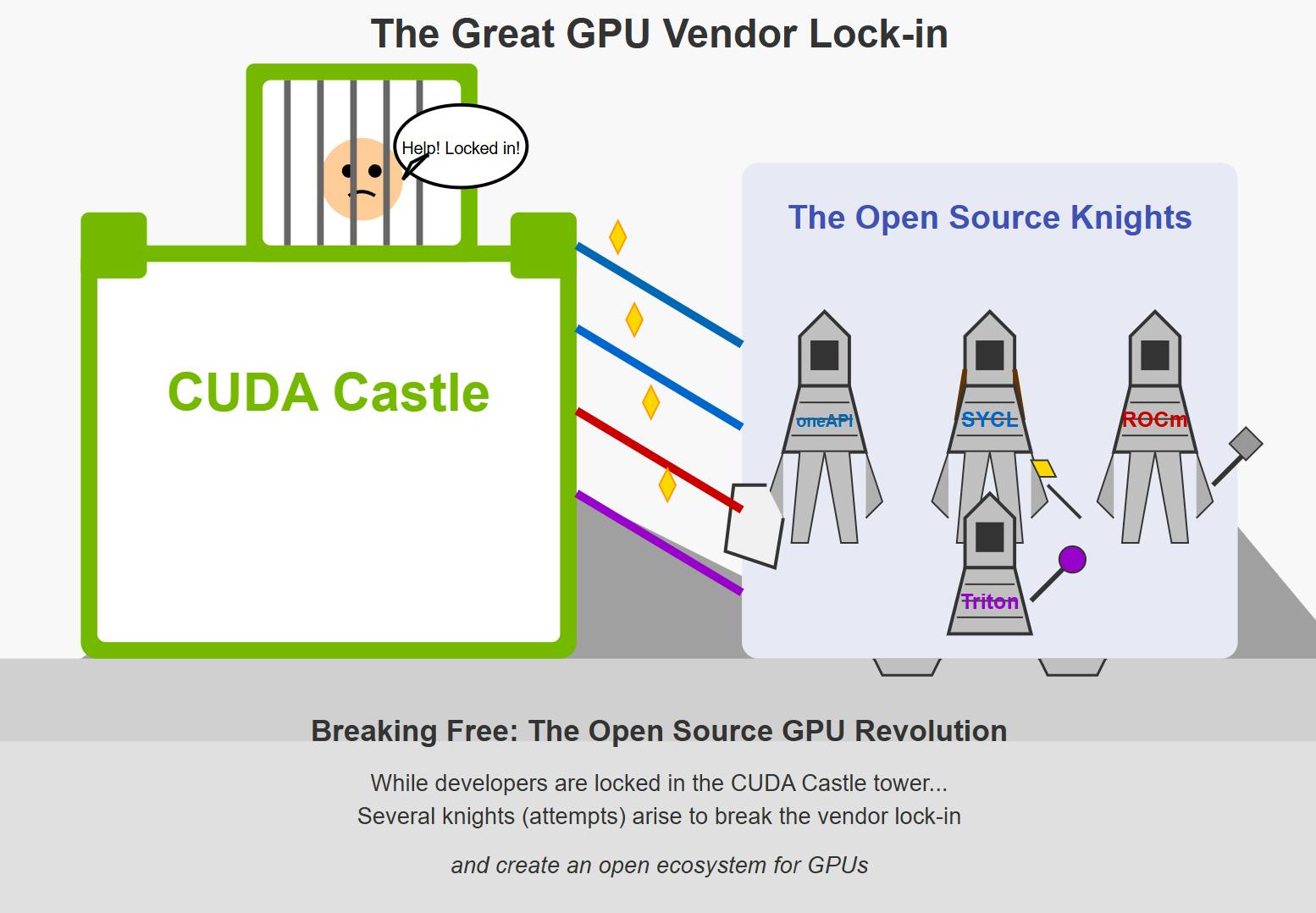
"OpenCL was groundbreaking as it allowed developers to write code that could run across heterogeneous platforms-CPUs, GPUs, DSPs, and FPGAs-from different vendors. This was the first major step toward democratizing GPU programming."
"The need to reach consensus among multiple stakeholders often results in slower development cycles compared to proprietary solutions. As one developer noted, OpenCL can be "a more slow-moving and hardware-agnostic specification developed by a committee, which cannot be extended unilaterally by GPU manufacturers.""
GPU programming has transitioned from proprietary frameworks like NVIDIA's CUDA to more open standards such as OpenCL, which was developed to promote cross-platform compatibility. OpenCL enables developers to code for various hardware types simultaneously, enhancing accessibility and innovation. However, the committee-based nature of OpenCL leads to slower development processes due to the need for consensus among stakeholders. This contrasts with proprietary solutions that can often evolve more rapidly. The ongoing shift towards open-source initiatives signals a move towards a more inclusive GPU computing landscape.
Read at Hackernoon
Unable to calculate read time
Collection
[
|
...
]